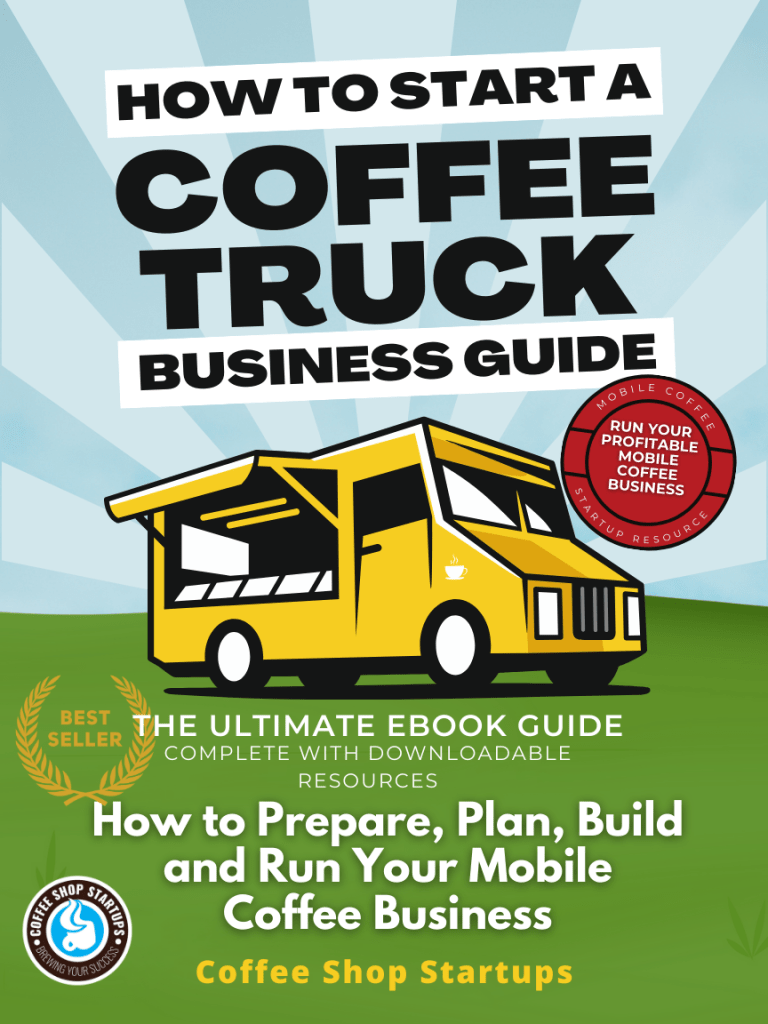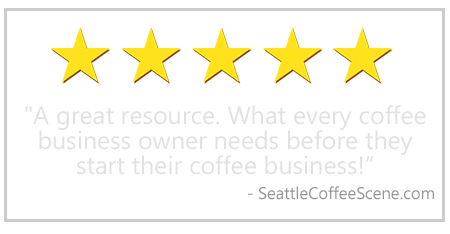Coffee Truck Permits and Licenses
Coffee Truck Permits and Licenses You Need to Start a Mobile Coffee Business
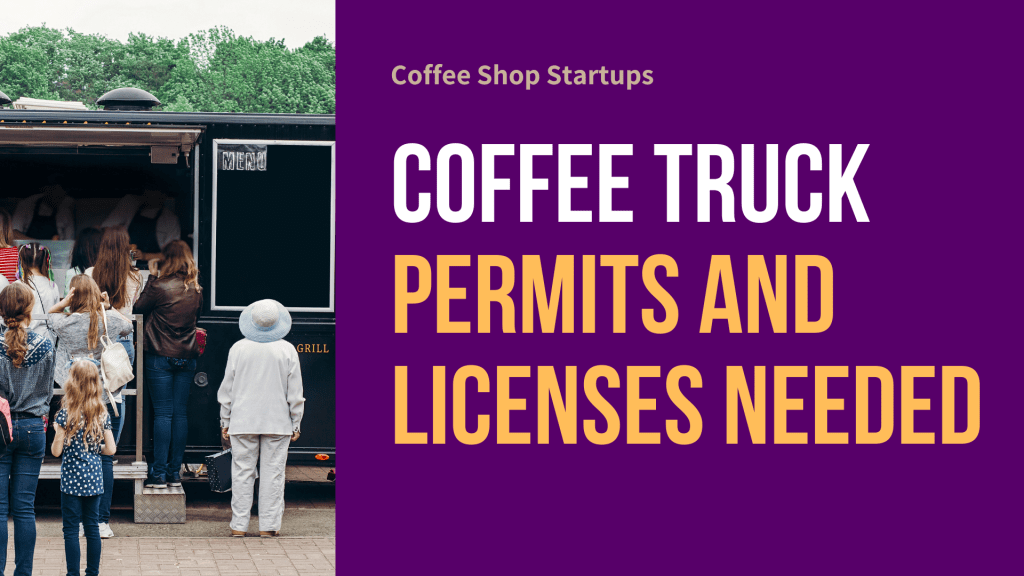
Coffee Truck Permits and Licenses
 Imagine setting up at your first festival—the crowds are rolling in, and you’re about to make a killing this weekend—only to be shut down by a city health inspector because your health permit is missing.
Imagine setting up at your first festival—the crowds are rolling in, and you’re about to make a killing this weekend—only to be shut down by a city health inspector because your health permit is missing.
Without the right permit and licenses, your coffee truck business will grind to a halt – in addition to any fines you’ll likely have to pay.
So, in this post, I want to discuss the permits and licenses you’ll likely need as you set up your coffee truck business.
Why Do You Need Coffee Truck Permits and Licenses?
Like coffee businesses, they can only legally operate by holding the proper permits and licenses. Operating without those mandated permits will likely lead to fines, closures, or other legal issues. Additionally, some jurisdictions may deny or ban any future business licenses and permits.
While it may seem like a big hurdle, getting your permits and licenses gives your business legitimacy and allows you to operate your coffee truck confidently.
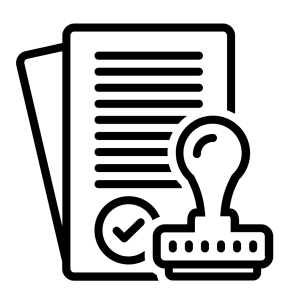
What Coffee Truck Permits and Licenses Do You Need?
Types of Permits and Licenses Needed
Your Coffee Truck Business Formation
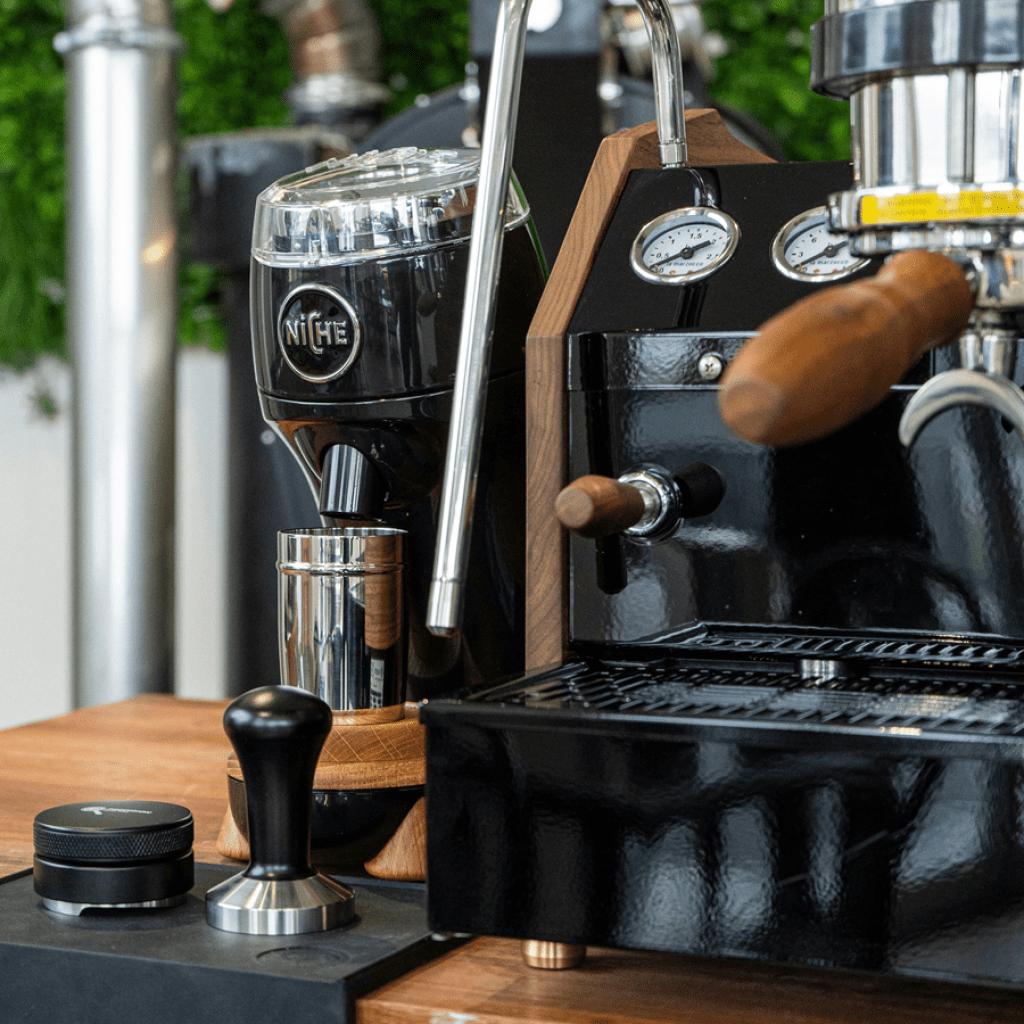 Before getting any permits and licenses for your coffee truck, you need to establish your business as an official entity in your state.
Before getting any permits and licenses for your coffee truck, you need to establish your business as an official entity in your state.
Therefore, before anything else, it’s recommended that you set up your coffee truck business structure first. There are many good reasons for this. The first is liability protection. Depending on your business structure choice, you can separate your personal liability from your coffee truck business startup.
The next important reason is that you can establish a needed bank account where all your coffee truck profits will eventually go! For now, however, your bank account will allow you to pay vendors and materials or be used when you purchase your mobile unit and coffee truck equipment.
Example:
- Form a business (i.e., LLC, Sole Proprietorship)
- Get Your EIN (IRS for Free)
- Open a business bank account
Your Coffee Truck Business License
You will need a business license to operate your coffee truck. You’ll likely need more than one business license if you own a coffee truck. First and foremost, your state will require a business license. This usually means working with your state’s Department of Revenue.
Your city will grant the subsequent business license. If you operate your coffee truck in multiple cities, you’ll also need a license in each city.
Staying organized is an essential managerial skill for tracking paperwork, taxes, and renewal fees.
Your business license will allow you to:
- Registering for a sales tax ID
- Allow you to report and remit sales taxes
Coffee Truck Health Department Permits
Your health department permits are often operated through a county health agency. Some larger cities may also provide you with a needed health permit.
Your health department agency will require an inspection of your coffee truck to ensure that it’s working correctly and that you can serve coffee and food safely and hygienically.
Your local health department agencies often provide you with a checklist of things you need to prepare for before your inspection. You’ll want to take the time to review them and come up with a plan to satisfy those health requirements before inspection.
Health Department Permits:
- It is likely required by each county you operate in.
- Check with your county and city health departments before buying your unit.
Building Department Permits For Coffee Trucks
Building department permits aren’t just for brick-and-mortar or drive-thru coffee shops – requirements are also mandated for coffee trucks and trailers.
These departments play a significant role in permitting—and frankly, you want them to. It’s essential to inspect your installations, not just for your safety but also for the safety of your customers. A faulty ground wire or improperly installed plumbing, venting, or electrical hookup can cause fires and property damage.
Your building department can or should be that resource you’ll need to ensure that everything is set up correctly.
- Check with your local buildings department before purchasing your coffee truck.
- Utilize state-certified contractors to install your electrical and plumbing properly.

Food Handler Certifications (Card)
Food and beverage handlers almost always require a food safety certification from local agencies. If your city, county, or state doesn’t require it, they will start soon. The emphasis on consumer safety is so strong that likely all jurisdictions will require this certification.
This type of certification is a good thing. It provides essential training (often done online) on general food safety and proper handling. This can help prevent your customers from getting sick and taking action against your business.
- Every employee will need a food handlers permit
- Will prevent food-borne illness
DOT Parking and Zoning Permits
In addition to the health and building departments, you may need to get permits from your local department of transportation. An equivalent agency may also provide permits to sell coffee on city streets or sidewalks.
Many cities have commercially zoned areas where you can serve food and beverages. Often, these permits are provided with various factors involved, including pedestrian safety, vehicular traffic, and other retail businesses that your presence would impact.
- Zoning, parking, and selling on streets need permitting
Fire and Safety Permits
Depending on your menu and your use of propane gas for heat, you will likely have a fire safety inspection. The inspection would have to be done by a Fire Marshal or fire safety inspector who would review your gas lines, installation, and equipment, among other things, to ensure compliance.
Further Reading: Great Coffee Truck Ideas

How to Apply for Coffee Truck Permits and Licenses
How you set out to tackle your permits and licenses will, in many ways, determine your success. Your ability to work within the regulations, follow safety procedures, and adhere to paperwork all play a role in our mobile coffee success.
At times, it can appear overwhelming. There are many codes, rules, and permitting issues that need to be addressed, but people do it every day. The more prepared, diligent, and organized you are, the better time you will have addressing your licenses and permits.
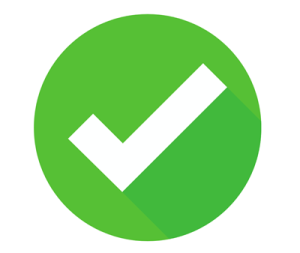
Checklist for Coffee Truck Permits and Licenses
Register Your Coffee Truck Business:
- Choose a business structure (e.g., sole proprietorship, LLC).
- Register with your state’s Secretary of State (or equivalent department)
- Get your free Employer Identification Number (EIN) from the IR if needed.
Apply for a Coffee Truck Business License:
- Connect with your city and state’s business office (i.e., Dept. of Revenue)
- Submit required business details, including ownership type and address.
- You’ll likely need a business license for every city and jurisdiction you sell coffee.
Obtain Health Department Permits:
- Check which agency is responsible for health permits.
- Download their requirements.
- Design, build, and/or modify your coffee truck accordingly.
- Schedule an inspection for your coffee truck.
- Have your menu developed.
- Submit a food service permit application, including truck layout and food handling procedures.
Get a Food Handler Certification:
- Complete a certified food safety course.
- It can be completed online.
- Ensure all staff members obtain certifications where required.
- Health inspectors often check for certification.
Apply for a Mobile Vendor Permit:
- Check city-specific requirements for vending locations.
- May include your local department of transportation
Fire and Safety Inspection:
- It is likely based on your menu and power systems
- Schedule a fire safety inspection for propane and electrical systems.
- Obtain a fire permit if required.
Sales Tax Permit:
- Register for a sales tax ID with your state’s tax office.
- Understand how you need to collect taxes and when to submit them (and where)
- Utilize a coffee truck POS system to help
- Keep records!
Parking and Zoning Permits:
- Research approved vending zones and parking regulations.
- Apply for parking permits through the local transportation office if needed.
- Be prepared to pay for monthly or quarterly fees
![]()
Tips for Staying Compliant With Your Coffee Truck
- Keeping permits up-to-date
- Staying informed by signing up with your local health and buildings department email list
- Understand what the health and building inspections are for and plan for them
- Stay on top of record-keeping (keep binders, folders)
- Setup reminders with tools such as Google Calendar
Coffee Truck Permits and Licenses Needed
Conclusion
The process of getting your permits and licenses for your coffee truck can be overwhelming.
The good thing is that there are often very few surprises. You already know that several essential tasks must be completed, such as registering your coffee truck as a business (like an LLC or corporation), getting the proper health and safety requirements, undergoing necessary inspections, and getting your permits.
Each requirement is crucial for ensuring that your operations run smoothly and legally, and most agencies have their checklist.
If you haven’t started your coffee truck planning, this is the perfect time to start early and do your research. Understand the players and the gatekeepers involved in your local city, county, and state, and figure out what information they already have available – and read through it.
With the help of great coffee, staying organized, and keeping track of renewal deadlines, you’ll be in good shape.
Pro Tip: Create a checklist or digital reminders to avoid missed inspections or permit lapses.
By investing time in the permitting process now (before you spend money on your coffee truck), you can avoid costly fines and business disruptions down the line.
Remember, every coffee truck success story begins with proper planning and compliance – and I’m here to help you if you need it.

So What’s Next?
Promotion and Market Your Coffee Truck
Even if you launch your coffee business, you can do plenty of free or low-cost things to promote your brand.
Of course, you’ll want to create your social media accounts and share your story with your followers.
You may want to plan a special event and promote your business by offering free samples, discounts, and music. You can partner with other local businesses to bring awareness to your opening.
Develop Your Coffee Truck Brand
As you start planning your business, you’ll want to settle on a brand, including your logo, menu, and messaging. Your coffee truck brand will help raise awareness, develop a loyal following, and attract repeat business.
Get Your Domain and Get Your Website
I recommend having a coffee business website. Your website will be the central hub for your information, story, merchandise, and coffee sales.
Domain Selection: Pick a domain name that’s easy to remember and relevant to your coffee truck.
Website Creation: It’s easier than ever to create a professional-looking coffee truck revenue that provides everything essential – your location, your daily or weekly schedule, your coffee menu, and your contact information. It will also be a great place to sell coffee online, merchandise, gift cards, and anything else you happen to sell.
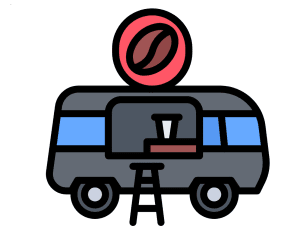
Get The Ultimate Guide!
How to Start Your Mobile Coffee Business
Our guide walks you through every step of launching your own mobile coffee business, providing the expert insights you need to succeed.
✅ Practical Tips and Insider Knowledge: Get hands-on advice on everything from choosing your mobile unit to crafting a unique coffee experience.
✅ Build a Profitable Business: Discover how to find the best locations and market your mobile coffee business to attract a loyal customer base.
✅Start with Confidence and Save Money: With our comprehensive guide, you'll have all the tools and knowledge to kickstart your journey into mobile coffee entrepreneurship – more affordably and quickly.
Order The Ultimate Mobile Coffee Business Guide
Successfully Plan and Launch Your Mobile Coffee Business
Affordable. Relevant. Comprehensive.
* The information on this page is for educational purposes only. We do not offer legal or investment advice.

